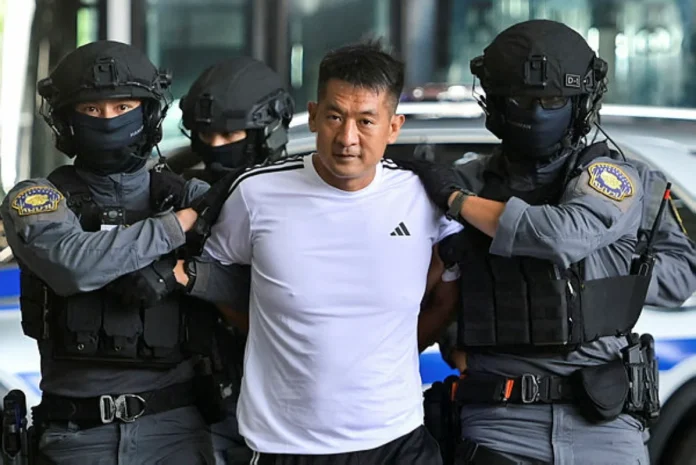Wanted gambling kingpin She Zhijiang extradited from Bangkok to China to face illegal gambling and money laundering charges after three-year legal battle
BANGKOK: Thailand has extradited wanted gambling kingpin She Zhijiang to China following a legal battle lasting more than three years.
Thai police confirmed the 43-year-old Chinese national was being sent to China on Wednesday after a court upheld an extradition order earlier this week.
She Zhijiang was arrested by Thai police in August 2022 on an international warrant and Interpol red notice requested by Beijing.
Chinese authorities accused him of running illegal online gambling operations from Myanmar and laundering money.
“The Chinese have asked for this suspect, which is a high priority for China,” Police Lieutenant General Jirabhop Bhuridej told reporters.
A Thai criminal court originally ordered his extradition in May 2024, with another court upholding the decision on Monday after an appeal by She’s legal team.
China dispatched a plane to collect She from Bangkok’s Suvarnabhumi airport and expressed gratitude to Thai authorities for their cooperation.
“This demonstrates the high level of our cooperation,” said Zhao Mengtao, a counselor at the Chinese embassy in Bangkok.
Zhao added that both countries would strengthen cooperation in tackling organised crime like online gambling and cyber scams.
She’s lawyer Sanya Eadjongdee called the extradition process “unusual” but did not elaborate.
The lawyer stated that She continues to deny any wrongdoing.
At the time of his arrest, She headed a gambling empire including a USD 15 billion casino, entertainment and tourism complex called Shwe Kokko on the Thai-Myanmar border.
The US Treasury Department sanctioned nine companies and individuals tied to Shwe Kokko in September for links to regional scam and trafficking networks.
Border areas between Thailand, Myanmar, Laos and Cambodia have become hubs for online fraud since the COVID-19 pandemic.
The United Nations says billions of dollars have been earned from trafficking hundreds of thousands of people forced to work in these compounds. – Reuters








